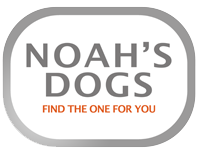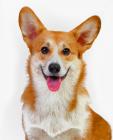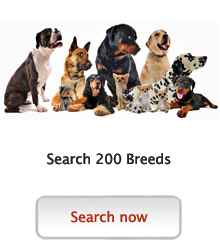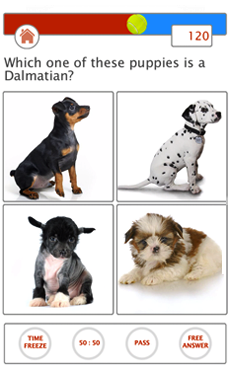Pembroke Welsh Corgi
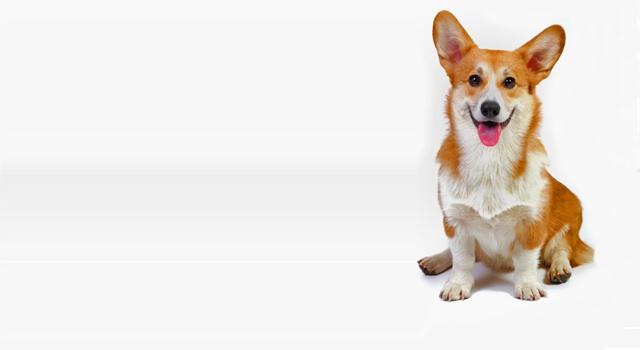
In my own words
Jolly nice to meet you. I’ve just been out rounding up my friends! Is there anything I can do for you? How about a trick!? I’m good at those. I’ll do anything to make you happy!
How about a cup of tea? The Queen likes her tea. We could have a garden party! And I could show you my tricks! Ooh that sounds like a delightful idea! Come on! Hurry up! No, not that way, this way…
My ideal owner(s)
Singles
Outdoorsy types
Active people
Ranchers
Families
What they say about me
Friendly
Bubbly
Playful
Outgoing
Loyal
Fidgety
Gentle
Tough
Hard-working
Is this Pembroke Welsh Corgi for you?
Test your knowledge about the Pembroke Welsh Corgi
Information essential about the Pembroke Welsh Corgi
Kennel Club Group:-
Herding; Pastoral
Size:-
Weight 25- 30lbs
weight: 25 - 30 pounds
height: 10 - 13 inches
Small
Dogs should measure between 25.5-30.5cms at the withers and weigh between 10-12kgs. Bitches should measure between 25.5-30.5cms at the withers and weigh between 10-11kgs
Popularity:
Most famously associated with The Queen. Queen Elizabeth II has owned more than 30 Pembroke Welsh Corgis since she was given her first as an 18th birthday present. For this reason the breed is very popular in the United Kingdom and has seen a boost in popularity since the Diamond Jubilee. They also gained popularity after appearing in the 1961 Disney film ‘Little Dog Lost’.
Breed History:
The Pembroke is said to be a descendant of dogs owned by Flemish weavers who settled in Wales in early 1100s. They are thought to originate from the same family as the Spitz, the Elkhound and the Pomeranian. They also bear a striking resemblance to the Swedish Vallhund, which suggests another theory that they were brought about by Viking Invaders in the 9th Century. Corgi’s were originally developed to help their owners drive cattle and guard livestock. The Corgi’s job was to nip at the heels of cattle, and drive them off land, prior to fencing. Closely related to and often mistaken with the Cardigan Welsh Corgis, the two have been recognised as separate breeds. The meaning of the name has been debated. Some believe the word is Welsh for dwarf dog. While it has also been suggested it is a derivation of cur, meaning working dog. They were registered by the Kennel Club in 1928 and accepted by the American Kennel Club in 1939.
Character:
Pembroke Welsh Corgis have bubbly and outgoing personalities. They are rarely aggressive or nervous. They are active and obedient dogs who love being with their family and do not do too well being left alone. They are not however, docile lapdogs. They are loyal and natural defenders of the home.
Temperament:
This loyal and intelligent breed still has a strong herding instinct and may attempt to herd children and family members. Proper training can resolve this issue. A farm or outdoor worker would benefit from a Welsh Corgi.
Conformation:
The Pembroke Corgi is a small and sturdy dog, set low to the ground. They are longer than they are tall. They have fox-like features with erect ears and pointy muzzles, which give them alert and intelligent expressions. These dogs have short stumpy legs and happy faces. Unlike the Cardigan Corgi they have virtually no tail. They are docked as short as possible and in some cases they are born tailless. Unlike the Cardigan Corgi, the Pembroke is almost tailless. Pembroke’s have a weather resistant, two layer medium length coat.
Colour:
Red, sable, fawn, black and tan. Some white markings.
Training:
Pembroke Welsh Corgis are intelligent dogs which are eager to please and easy to train. They can be dominant however, if given the opportunity. They should be socialised and trained from a young age. They are not difficult to housebreak.
Care:
As with dachschunds, Corgis should be handled with care. If they have to be held at all, they should be held in a supportive, balanced way. Puppies need to be taught how to go up and down stairs due to their short legs. They are prone to back and joint problems so must be watched closely if a lot of stair climbing is involved in their daily activities. The Corgi’s coat requires grooming once or twice a week. They are moderate shedders. They should be bathed only when really necessary. These dogs have a tendency to become overweight so their diet must be watched..
Health:
The average life span of a Welsh Corgi is 14 years. They are hardy dogs and if you buy from a reputable, responsible breeder problems should not occur, however as your Corgi gets older common ailments may arise. These can include Hip dysplasia. This condition can be alleviated by surgery but at a great cost to the dog and owner. Buyers should ask breeders if the sire and dam of the puppy has been rated clear of hip dysplasia and ask for a copy of the certificate. Breeders are also screening for the eyes. Corgis also have a tendency to become overweight if you do not watch their diet, which can lead to and aggravate back and joint problems. Other diseases include Degenerative Myelopathy, a slow progressive spinal chord disorder, the cause of which is unknown but it is believed to be an autoimmune disease. Dogs affected can become progressively weaker and uncoordinated. While exercise can delay the progression, there is no known treatment. Welsh Corgi Pembrokes can also suffer from Progressive Retinal Atrophy, a hereditary disease of the eye. They should be examined yearly by a member of the Veterinary Ophthalmologists. They are also susceptible to Entropion, a problem with the eyelid, which can be treated with surgery when detected early on. Welsh Corgi Pembrokes are prone to epilepsy. This seizure disorder has no known cause, however it is important to determine there are no underlying causes. Symptoms of seizures include a far away look, twitching, falling, gnashing teeth, accidental urinating or defecating and thrashing. Seizures come on suddenly and end suddenly and can last just seconds or go on for some time. Treatment includes anticonvulsant medication. Welsh Corgi Pembrokes can also suffer from Von Wille Brand disease. A DNA test is available for this potentially deadly bleeding disorder. This inherited disease is similar to haemophilia in humans, and means that the dog has a prolonged bleeding time. Dogs that are vWD affected could bleed out from a minor wound and are at risk whenever they have an accident or surgery
You may also like:
If you like Pembroke Welsh Corgis, you may be interested in breeds of the same size »
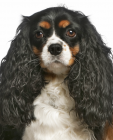
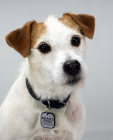
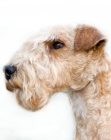
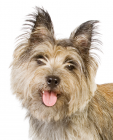
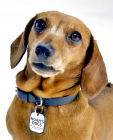
If you like Pembroke Welsh Corgis, you may like other breeds with similar characteristics »



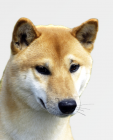
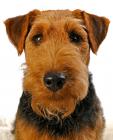
If you like Pembroke Welsh Corgis, you may be interested in these other pastoral dogs »
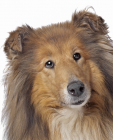
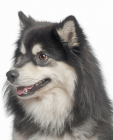
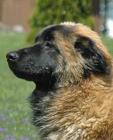

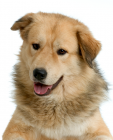
Advice on choosing your breed »
Find an animal shelter or rescue home where a Pembroke Welsh Corgi is waiting for a new home »
The following grid gives a fast track review which covers all breeds. You can apply it to help you decide if a Welsh Corgi Pembroke is suitable for you, the environment where you live, your personality and your lifestyle. On the grid, 1= strongly disagree, and 5= strongly agree. For example, if you are looking for a dog that likes to do tricks, look down the list under Activities, and you will see that Welsh Corgi Pembroke are smart and love learning tricks, scoring 5. You might like to save or print off this section and keep it for reference while you check some other breeds before making your final choice.
Be the first to rate this breed »
|
*PLEASE NOTE: All our breed profiles are general, and all dogs are individuals. Always talk to the breeders and meet the owners you are buying from. Try to meet the dog and its parents if it is a puppy in their home environment.
